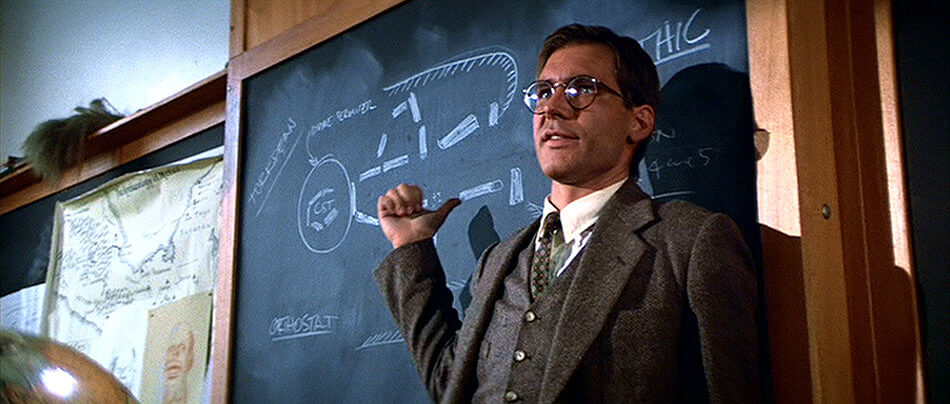Picture this: Assembling your own research, education and valuable life lessons, and passing it on to a group of individuals that have the capability to impact the world for the better. Does that sound appealing to you? In that case, you might want to pass on from education and become an educator yourself, a professor. Shine up an apple and read on for the comprehensive guide to being a professor at a higher education establishment.
Learn how to be a professor.
What does a Professor Do?

Other than silently judging their hungover students in lecture? You’ll perform a whole assortment of education, from grading tests and papers to exploring research or writing in their area of work. “Professors are also responsible for maintaining their own research and writing agenda, working on articles and books, when they’re not teaching and doing service. So, while professors often have part or all of every summer off (in addition to university holidays), they cannot stop working, because they must use that open time to immediately return to and complete their ongoing research and writing. The research side of the job also entails traveling to conference and presenting research to peers at national meetings. Most professors present research at between one to four conferences per year,” said University of Iowa associate professor Laura Rigal. A professor rarely just teaches a classroom of students, having a plethora of accomplishments and research to showcase outside of Rate My Professor.
What does it take to become a Professor?

In short, a lot of work and a lot of school. The first step after deciding to pursue education entails choosing a field of education you want to go into: philosophy, biology, humanities and so on. After that comes the hard part: the schooling. Following your bachelor’s degree in the education track or a major of your choice, you enroll in graduate school. For most every university, you’ll need a Master’s degree at minimum. The bar often raises for universities of higher prestige or private universities, such as obtaining a doctorate’s degree, so keep that in mind when attempting to apply to Harvard. In addition to that, you want to have actual experience in educating people throughout your time in school. Think internships, teaching assistant jobs, research assistance and so on. Think back to your TA never knowing the answers to the homework, or stressing about their own thesis. Becoming a professor takes a lot of hard work and late night stress sessions. Sympathize.
What you should know about becoming a Professor?

1. What will I earn as a professor?
Take advantage of those student discounts while you can. Due to the diversity in universities’ payment, whether the professor has tenure and how renowned the university is, an average professor’s salary ranges anywhere from $38,290 to $168,270 yearly. The general median comes out to around $75,430.
2. How much will I be expected to work as a professor?
Don’t be fooled by the semester ending. The average professor works both in and outside of the classroom. Depending on the area of study the professor involves themselves in, these busybodies also work on their own research, theses, writing and much more while trying to grade your grammatically incorrect essays.
3. What will my work environment be like?
To say the least, very fluid. “One major complication of being a professor, I find, is the degree to which, from semester to semester, a professor’s schedule changes. Each new semester starts off with new classes, new class days/times, different committee assignments, new graduate students (Ph.D. or MA) and a whole new roster of incoming lecturers and special academic events. In addition, professors’ service requirements demand ongoing ever-changing committee work, not only within your department (such as annual admissions committee, steering committees) but also for the university at large, with service on grant or fellowship committees, or university hiring and administrative committee. You’ve also got to schedule yourself anew each semester,” said Rigal.
4. What do I need to know about the future of the profession?
There exist a select few of universal truths: dogs will always love you, and teachers will never run out of demand. However, distinct shifts in the matter of education demand professors to follow suit. As technology becomes more prevalent, teachers will need to become more proficient in working newer ways of learning and discussion. As well as that, a surprising number of employers emphasize the lack of “soft skills” in hiring applicants such as communication and conflict resolution. See here: professor who made you cry your first week freshman year.
3 key skills you need to become a Professor

1. Adaptability
Everyone in college has experienced that professor that made their class the greatest, as well as broke it into several, sharp pieces. “So you have to be good at juggling a lot of little pieces, and have a taste for independent self-organization,” said Rigal. A lot of adaptability goes into the professor process, because you simultaneously have to calm the know-it-all and discipline the vaping frat boy—game face, on.
2. A sense of humor
“The key skill is a very deep and abiding sense of humor,” said University of Iowa professor Victor Camillo. Laughter often cures the best and worst situations during the stress of a professor’s everyday. Think someone that spelled their name wrong on the final, a person audibly snoring during a review session and the line that appears from the ether to inform you that they haven’t understood the past three chapters.
3. Patience
“I think that an essential skill for any professor is patience and the ability to recognize that we are researching questions and puzzles for the long haul. Any new and creative ideas are going to run up against established traditions and norms, and they are likely to be seen with suspicion. Over time the best of these ideas come to be accepted as obvious, but not at first, and so it’s important to be steady and resolute in pointing back to the data and findings,” said University of Iowa professor David Cunning. To say that professors shape the world is as much an understatement as saying this year’s political atmosphere has been “kinda wild.” Students pass through their lens every semester, every year, so as a professor you should realize the long-term impact that you have as someone in the education system. Realize your worth, funnel your passion and make the world a better place.
Reviews
“Overall, I think humanities professors are required to live creatively. This has drawbacks but also some wonderful features. You meet new and wonderful people each semester—the students. In the Humanities, undergraduate and graduate students are often inspiring people, who are, themselves, living creatively. Professors always gets a lot back from their students. Students make it worth while. And, overall, it’s a great job if you like to work on your own, to be in charge of charting your own way, on your own, each and every day. This can be isolating. But it’s also freeing and opens space to keep imagining and creating.” – English and American Studies Associate Professor Laura Rigal
“One of the great things about being a professor is that we are able to research and write about puzzles and problems, and then bring them into the classroom to engage students in conversation. There are the things that we know we know, the things that we know we don’t know and the things that we don’t know we don’t know. The first of these is very important, but it’s the second and third that guide us to increase our knowledge. It is the extremely rewarding job of the teacher-scholar to investigate those with students and colleagues.” – Philosophy Professor David Cunning
“Being a professor is doing everything at once and still getting it mostly right.” – Mathematics Professor Victor Camillo



















